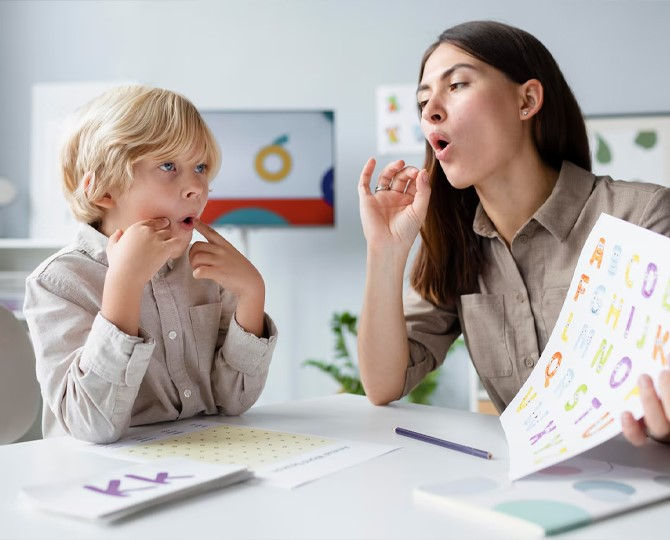
At Speech Ally, we work with clients who have specific speech-sound difficulties.
Listening to a child say “One wabbit for me, pwease!” (One rabbit for me, please!) or “Tho thilly, mommy!” (So silly, mommy!) can be adorable and cute. These sound errors are typical in early speech development. However, sometimes they persist into later ages and affect speech intelligibility.
Speech intelligibility in speech therapy refers to how clearly a child can be understood when speaking. It is crucial for children because it impacts their ability to communicate effectively with others, build social relationships, and succeed academically.
What are the different types of speech-sound errors common in children undergoing speech therapy?
● Substitution Errors: Replacing one sound with another. For example:
○ Liquid Gliding: Replacing /r/ with /w/, as in "wabbit" for "rabbit."
○ Stopping: Replacing a fricative sound with a stop, such as "tun" for "sun."
● Omission Errors: Leaving out a sound in a word. For example:
○ Final Consonant Deletion: Omitting the final consonant, like saying "buh" for "bus."
○ Initial Consonant Deletion: Omitting the initial consonant, such as "ee" for "bee."
○ Cluster Reduction: Omitting one or more sounds in a cluster, such as “toberry” for "strawberry."
● Distortion Errors: Producing a sound in an atypical manner. For example:
○ Lateral Lisp: Airflow directed over the sides of the tongue for /s/ and /z/, making them sound weak and slushy.
○ Dentalization or Frontal Lisp: Turning /s/ and /z/ into /θ/ (th) due to incorrect tongue placement, such as “thick” for "sick."
● Addition Errors: Adding an extra sound in a word. For example:
○ Epenthesis: Inserting an extra vowel, such as "cuhlay" for "clay."
Conclusion
The longer parents wait to address these issues, the harder it may be for children to unlearn these errors.
The speech therapists at Speech Ally can help by creating individualized therapy plans based on the child’s specific errors and needs. They use a combination of practice, visual aids, auditory discrimination, fun games, and phonological awareness activities to improve speech clarity and overall communication skills.


Comments